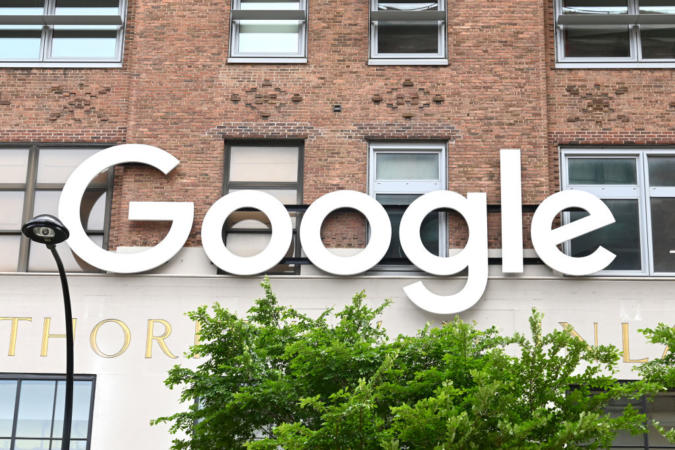Google’s Tech Exchange program made many promises to invest in more Black engineers, but has the big tech company been delivering on them?
Not quite, and Historically Black College and University (HBCU) students and faculty who have been a part of the program have stepped forward to express their disappointment.
In the summer of 2017, Google teamed up with Howard University (HU) to launch Howard West, the first ideation of what the Google Tech Exchange program is today. Howard West started as an exchange program that allowed accepted HBCU computer science students to study at Google’s Mountain View campus for a semester. While Google promised to bring 700 HBCU students to its West Coast campus to participate in the Tech exchange program in the first five years, CNBC reported that the company is far behind that mark since less than 200 Black students have been welcomed to participate.
While Google has been failing to reach the goals it set with this program, it seems like overambition and a lack of preparation could be the real reasons the program isn’t living up to its expectations.
This program, amongst many others, was launched after Google released its diversity numbers for the fist time in 2014. The eye opening data showed that only 2.4 percent of the big tech company’s workforces were Black. According to Google’s s 2020 diversity report, that number has merely improved to 3.7 percent. Google has copped out in the past by repeatedly blaming its diversity issues on the lack of access to Black tech professionals.
“It seemed to grow way too fast, which led to a lot of disorganization early on,” Dr. Curtis Cain, a faculty member who taught from Google’s campus, told CNBC. “For the most part, people had positive intent but it felt like the program transitioned into Google being more interested in pumping out software engineers without taking into account many other aspects.”
Dr. Cain along with a variety of students and faculty expressed their frustration with the program in an exposé with CNBC back in February. AfroTech has since spoken with a current Google employee, who wishes to remain anonymous, that participated in Tech Exchange during her tenure in undergrad.
The employee told AfroTech that in some ways, the program was beneficial because of the opportunity to meet some amazing people in the same field who attended other HBCUs. The employee was also pleased with being exposed to the world of venture capital and tech companies during their studies in Mountain View. However, one of the main struggles during the program was keeping up with classes.
“The course work was definitely challenging and my other peers were a lot more technical than I was,” the employee said. “It was an overwhelming experience since we had so many projects, but I was able to take courses that I wouldn’t have been able to take at my HBCU.”
This employee wasn’t the only one to point out the course load. CNBC reported that students spent 12 to 15 hours in the classroom each day, which left little time for tutoring and office hours. Google also expected students to know the course material upon arriving to campus. The employee said that the program was disorganized, and the planning seemed rushed. She also said that sometimes she could tell the instructors had no teaching background since they would often struggle with explaining things in class.
“There were quite a few imperfections,” she said. “I will say that, because things were set in stone, there was room for improvement and the program leaders were willing to make changes throughout the year, which was probably the most interesting thing.”
Even after being a few years removed from the program, the employee revealed that she still doesn’t know who is responsible for how it is run. When you visit Tech Exchange’s website, there’s not much information about the program leaders either. I even did a search on Linkedin, and the only profiles that pop up are Google Tech Exchange Scholars — no direct employees associated with the program.
At times, the employee said they felt their cohort was in an experimental bubble during the program. Since they weren’t classified as Google employees, Tech Exchange participants didn’t necessarily get all of the perks they expected they would get and the employee said there weren’t even any social activities planned for them.
“One thing I’d like to see is more emotional support for the students,” the employee said. “I know that was something that we really lacked. We didn’t have access to Google’s resources outside of meals, laptops, and transportation. We couldn’t go to counseling and I think that would have helped a lot of people since we were far from our schools.”
CNBC also reported that some Tech Exchange participants experienced microaggressions from Google employees while they were on campus. Students were often asked to show their badges to prove their identity, while others said they were harassed by security on their commutes and accused of stealing company property.
It’s apparent that Google has a lot of work to do on the diversity and inclusion front, especially after it recently decided to restructure its Artificial Intelligence teams after firing some of its high-level, minority tech employees.
Despite the mishaps, the employee said they’re still in contact with their mentor from Tech Exchange. Although this is rare since majority of the employee’s peers no longer speak to theirs.
“Overall, I don’t regret doing the program, but I don’t think I would do it again,” the employee said.


